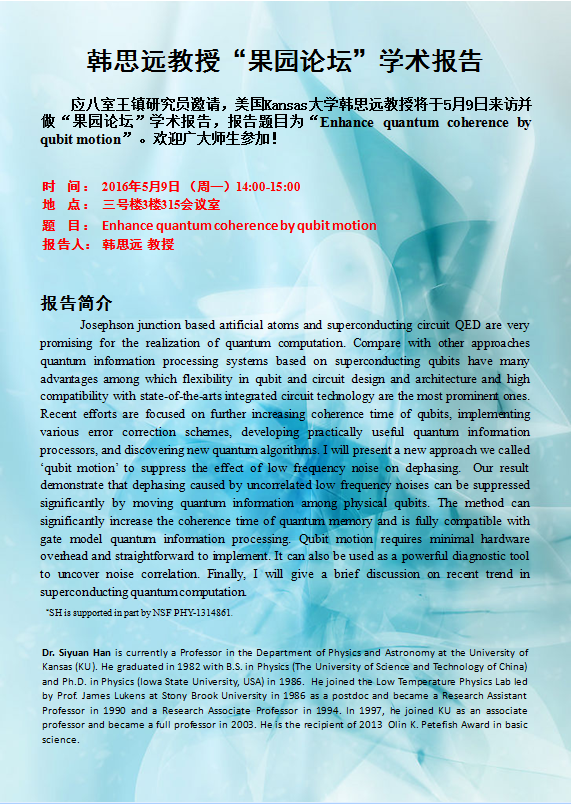Enhance quantum coherence by qubit motion
Josephson junction based artificial atoms and superconducting circuit QED are very promising for the realization of quantum computation. Compare with other approaches quantum information processing systems based on superconducting qubits have many advantages among which flexibility in qubit and circuit design and architecture and high compatibility with state-of-the-arts integrated circuit technology are the most prominent ones. Recent efforts are focused on further increasing coherence time of qubits, implementing various error correction schemes, developing practically useful quantum information processors, and discovering new quantum algorithms. I will present a new approach we called ‘qubit motion’ to suppress the effect of low frequency noise on dephasing. Our result demonstrate that dephasing caused by uncorrelated low frequency noises can be suppressed significantly by moving quantum information among physical qubits. The method can significantly increase the coherence time of quantum memory and is fully compatible with gate model quantum information processing. Qubit motion requires minimal hardware overhead and straightforward to implement. It can also be used as a powerful diagnostic tool to uncover noise correlation. Finally, I will give a brief discussion on recent trend in superconducting quantum computation.

